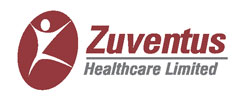Overview of EPR Fulfilment in Tyre Waste Management
EPR Fulfilment for Tyre Waste Management is a crucial part of the Extended Producer Responsibility (EPR)
framework, which holds producers, importers, and brand owners responsible for the end-of-life management
of tyres they introduce into the market. This regulation aims to ensure that used tyres are collected,
processed, and disposed of in an environmentally sustainable manner, minimizing their impact on the
environment. Under this framework, companies must establish systems for the collection and recycling of
tyres, either by directly handling the waste or collaborating with certified waste management agencies
and recyclers. By fulfilling their EPR obligations, businesses contribute to the reduction of tyre waste
and promote the recycling and reuse of materials, aligning with broader environmental conservation
goals.
Process for EPR Compliance of Waste Tyres
The Central Pollution Control Board (CPCB) has developed a centralized EPR portal to streamline and
simplify the compliance process for waste tyre management. This portal functions as a unified platform
for all stakeholders involved in tyre waste management, ensuring a more efficient and accountable
process. The portal facilitates several key activities for stakeholders, including:
- Registration of Stakeholders: All producers, importers, and brand owners involved
in tyre production and distribution must register on the portal to participate in the EPR
program.
- Generation of EPR Credits: The portal enables stakeholders to generate EPR credits
based on the quantity of waste tyres they manage, recycle, or dispose of in compliance with the
regulations.
- Trading/Issuance of EPR Certificates: EPR certificates, which verify compliance
with waste tyre management obligations, can be traded or issued via the portal, allowing
stakeholders to fulfill their EPR requirements.
- Filing of EPR Obligations: Stakeholders can file their EPR obligations through the
portal, ensuring that all necessary documentation and reports are submitted to the regulatory
authorities in a timely manner.
By using the CPCB's EPR portal, stakeholders can more effectively manage their compliance
responsibilities, contributing to a more accountable and transparent waste tyre management system.
Non-compliance with EPR Regulations for Waste Tyres
If any registered stakeholder provides false information, intentionally conceals details to obtain
registration, or submits inaccurate returns, reports, or other required information under this schedule,
the CPCB has the authority to revoke the stakeholder's registration. This revocation can last for up to
three years, following an opportunity for the stakeholder to present their case. In addition to the
revocation, environmental compensation charges may also be imposed on the non-compliant party.
Responsibility of Stakeholders for EPR Compliance of Waste Tyres
Producers, as defined by the EPR regulations, include various categories of stakeholders such as:
Documents Required for EPR Compliance as a Producer of Waste Tyres
To register as a producer of waste tyres under EPR compliance, the following documents and information
are required:
 GST Number
GST Number Mobile Number
Mobile Number Company Email ID
Company Email ID PAN Number
PAN Number IEC Number
IEC Number Corporate Office
Address (including Country, State, City, and Pin-Code)
Corporate Office
Address (including Country, State, City, and Pin-Code) CIN Number
CIN Number Authorized Person
Details
Authorized Person
Details
Producers must also select the category that best describes their business operations:
- Producer (P1): Quantity of new tyres manufactured domestically.
- Producer (P2): Quantity of new tyres procured domestically.
- Producer (P3): Quantity of new tyres imported.
- Producer (P4): Quantity of tyres imported along with vehicles.
- Producer (P5): Quantity of new tyres imported exclusively for new vehicles
manufactured domestically.
- Producer (P6): Quantity of imported waste tyres.
Responsibility of Recyclers for EPR Compliance of Waste Tyres
Recycling involves the conversion of waste tyres into environmentally sound end products, as specified by
the CPCB. These products include:
Required Documents for Recyclers for EPR Compliance
To register as a Recycler of waste tyres under EPR compliance, the following documents and information
are required:
Responsibility of Waste Tyre Importers
Waste tyre importers are required to meet an EPR obligation equivalent to 100% of the tyres they import
within a given year.
Important Note:
The importation of waste tyres for the purpose of producing pyrolysis oil or char is prohibited.
EPR Credit for Compliance with Waste Tyres
To meet their EPR obligations, producers must acquire EPR credits from registered recyclers. While
producers can purchase retreading certificates to extend their EPR obligations, it is crucial to obtain
recycling certificates to fully satisfy compliance requirements. This approach emphasizes the importance
of tyre waste recycling.
To support these processes, the Central Pollution Control Board (CPCB) has established a centralized EPR
portal. This portal provides a comprehensive platform for managing various EPR-related activities:
- Registration of Stakeholders: The portal allows for the seamless registration of
all parties involved in tyre management, including producers, recyclers, and retreaders.
- Generation of EPR Credits: Recyclers and retreaders can use the portal to generate
EPR credits, ensuring a transparent record of their recycling and retreading efforts.
- Trading/Issuance of Certificates: The portal facilitates the trading and issuance
of EPR certificates, enabling producers to meet their obligations by acquiring these
certificates from registered recyclers.
- Filing of EPR Obligations: Stakeholders can file their EPR obligations through the
portal, streamlining the process and ensuring accountability in regulatory compliance.
This regulatory framework, supported by the CPCB’s centralized portal and the EPR mechanism, aims to
enhance the responsible management of tyre waste and ensure compliance.
EPR Credit for Producers of Waste Tyres
Producers must meet their EPR obligations by purchasing EPR credits from registered recyclers through the
online portal. They are required to submit these credits online and file their quarterly returns.
The EPR target for producers will be adjusted by the CPCB to account for tyre wear and tear.
A producer may purchase EPR credits up to the total of their current year’s EPR liability, any
outstanding liabilities from previous years, plus an additional 10% of the current year’s liability.
Producers must fulfill their EPR obligations by proportionally purchasing EPR certificates on a
quarterly basis.
Validity of EPR Credit
EPR credits remain valid for two years from the end of the financial year in which they were generated.
Why Choose SeaRoot for Epr compliance for Waste Tyres
Choosing SeaRoot for EPR compliance for waste tyres offers several compelling advantages. SeaRoot provides expert guidance and streamlined solutions tailored to meet the complex requirements of tyre waste management. With a deep understanding of regulatory frameworks and extensive experience in managing EPR obligations, SeaRoot ensures that your compliance process is both efficient and effective. Their comprehensive services include assistance with documentation, credit acquisition, and reporting, all facilitated through a user-friendly platform. By partnering with SeaRoot, you benefit from a dedicated team committed to helping you navigate EPR regulations seamlessly while promoting responsible environmental practices.
Frequently Asked Questions
1.What is EPR compliance for waste tyre management?

EPR (Extended Producer Responsibility) compliance for waste tyre management involves the obligation of producers, importers, and brand owners to manage the lifecycle of tyres they place on the market, including their collection, recycling, and disposal. It aims to ensure that waste tyres are handled in an environmentally responsible manner.
2.Who needs to comply with EPR regulations for waste tyres?

Producers, importers, and brand owners of tyres, including manufacturers, sellers of new tyres, importers of vehicles with new tyres, and importers of waste tyres, are required to comply with EPR regulations.
3.How can producers fulfill their EPR obligations?

Producers can fulfill their EPR obligations by purchasing EPR credits from registered recyclers, which offset their recycling and waste management responsibilities. They must also file quarterly and annual reports detailing their EPR activities.
4.What documents are required for registration as a producer or recycler?

Producers and recyclers need to provide various documents including GST number, PAN number, company email ID, consent to establish and operate, and authorization under hazardous waste rules. Recyclers must also submit geotagged pictures of machinery, pollution control devices, and process flow charts.
5.How long are EPR credits valid?

EPR credits are valid for two years from the end of the financial year in which they were generated.
6.Can waste tyres be imported for the purpose of producing pyrolysis oil or char?

No, the import of waste tyres for producing pyrolysis oil or char is prohibited under EPR regulations.









